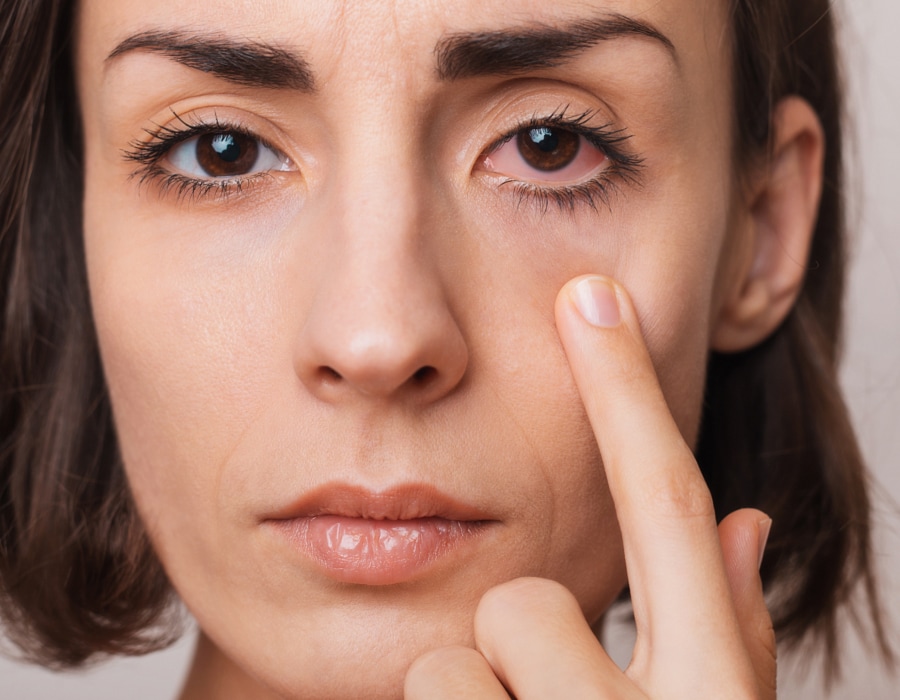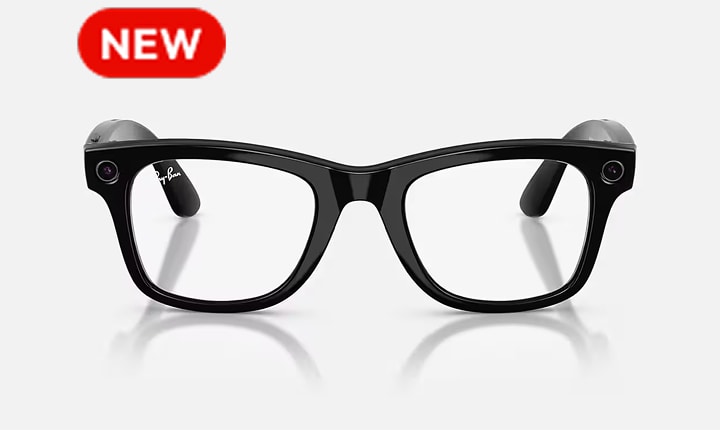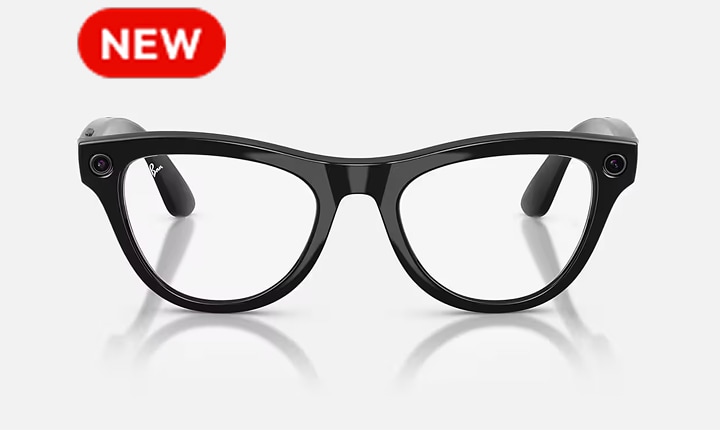Reviewed by Thomas Stokkermans, OD, PhD, FAAO on August 26, 2024
If you were an avid TikTok or Instagram user between 2021 and 2022, you may remember the trend of people forcibly removing goop from their eyes with a cotton swab or finger. While this trend of cleaning out the stringy slime in eyes is still considered “satisfying” to some social media consumers, it’s quite a concern to eye care professionals everywhere.
This “fishing” behavior may seem harmless, but in reality, it can lead to something called mucus fishing syndrome. Also called eye fishing syndrome or mucus eye syndrome, the condition occurs when the eye produces too much mucus as a response to mechanical damage.
The goop (or stringy eye mucus) that your eyes produce is critical for their healthy structure and function. Constantly and vigorously removing it irritates your eyes, and they respond by producing more mucus. This creates a cycle that can be both very hard to break and harmful to the eyes.

What Are Symptoms of Mucus Fishing Syndrome?
The most significant symptom associated with mucus fishing syndrome is pulling strands or “strings” of mucus out of the eye(s). But people may also experience:
- Inflammation
- Redness in or surrounding the eye
- Pain
- Watery eyes
White stringy mucus in eyes can be hard to ignore, but removing it with your fingers or cotton swabs can cause any of these symptoms (and lead to more mucus production) each time you do it.
What Causes the Eyes to Produce Extra Mucus?
In addition to manually “fishing” mucus from your eyes, certain underlying eye conditions can cause your eyes to produce excess mucus. These include:
Dry Eye Syndrome
There are three important layers in tears: water, oil, and mucus. People with dry eye syndrome don’t produce enough tears to keep their eyes moist. This can cause discomfort, itching, and other problems.
Your eyes still produce mucus, even if they don’t produce the other layers of tears (water and oil). As a result, mucus can build up in your eyes, and you wind up pulling out more white stringy eye discharge. Unfortunately, removing the mucus manually can irritate your eyes and cause them to produce even more mucus. And if you have chronic dry eyes, it can become a cycle that leads to mucus fishing syndrome.
Conjunctivitis (Pink Eye)
The most common types of conjunctivitis are bacterial, viral, and allergic. All three types can result in excess eye discharge, but only bacterial and viral pink eye are contagious.
With conjunctivitis, the clear membrane covering the white of your eye and inner eyelid (the conjunctiva) becomes inflamed. This leads to eye redness, irritation, stinging, itching, and a feeling that something is in your eye.
When you have an itchy or irritated eye, your reaction may be to scratch or rub it. You may even find yourself removing stringy eye discharge. This can cause mucus fishing syndrome.
Blepharitis
Inflamed eyelids, called blepharitis, can also lead to excess mucus production and mucus fishing syndrome. This condition may be caused by dysfunctional oil glands in the eyelids or bacteria in the lashes themselves.
Along with inflammation, you may experience soreness and itching. Your eyes respond by producing more mucus, which can lead to mucus fishing syndrome in some patients.
Repetitive Psychological Behavior
Some people struggle with compulsive behaviors, like trichotillomania, a disorder that causes irresistible urges to pull out their own hair. Some that have trichotillomania also pull out their eyelashes, which can cause damage to the cornea. The body senses this damage and responds by producing mucus in the eye to aid in its repair.
The additional amount of mucus can trigger mucus fishing syndrome, especially for patients who constantly touch their eyes or pull out their eyelashes.
Why Do My Eyes Produce So Much Mucus?
That white stringy eye discharge can be… well… icky. But it’s there for a reason. Eye mucus is produced as a way for the body to protect itself from viruses, bacteria, fungi, and other toxins that can lead to infection. It’s also there as a natural lubricant to keep your eyes moist and comfortable.
When you remove mucus strings from your eyes, your body responds by creating more to try and soothe the irritation you caused and keep your eyes safe from toxins. In some cases, the mucus production can become excessive.
Is Mucus Fishing Syndrome Dangerous?
Yes, mucus fishing syndrome can be harmful to your eyes. Touching your eyes over and over can cause irritation — and it can also lead to more serious consequences, like scarring in the eyelid or cornea.
Plus, your dirty fingers can introduce bacteria to your eyes, which can cause an eye infection. Both infections and injuries of the eye need to be addressed promptly to avoid long-term problems.
Can Mucus Fishing Syndrome Cause Blindness?
In severe cases, mucus fishing syndrome can cause an eye infection or an injury of the cornea. If either is left untreated, they can cause significant damage. In some cases, this may mean vision loss.
Never hesitate to contact your eye doctor at the first indication of eye irritation, infection, or other issues.
How to Get Rid of Stringy Eye Mucus
In many cases, stringy eye mucus occurs as a result of an infection or other condition. Treating this condition can help control the amount of mucus your eyes create, which can make your situation more manageable.
While it can be difficult, you should also refrain from wiping and rubbing your eyes, removing mucus, or touching your eyes for any other reason. Some people may benefit from psychotherapy if a mental health disorder is a concern for repetitive or compulsive behaviors, such as touching the eyes.
Speak with your eye doctor to learn about other possible courses of action you can take.

When to See an Eye Doctor
It’s a good idea to call your eye doctor if you experience eye irritation, redness, excess watering, or any other concerning symptoms. If you notice an influx of stringy eye mucus, you may need to begin treatment for an infection or other condition (or revisit an existing treatment plan).
Everyone is different, and some treatments may work better for some than they do for others. Be patient as you work with your eye doctor to determine the best course for your eye health and be sure to speak up if something is bothering you.
Remember to schedule your annual eye exam as well. An exam can reveal a problem you didn’t know you had, whether it be an eye condition — or the need for an updated eyeglasses prescription — and allow for prompt, proper treatment.

























